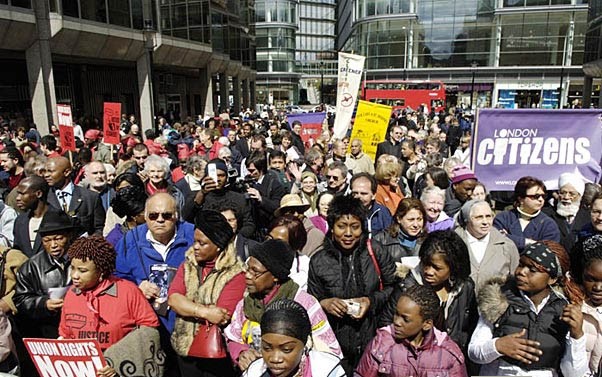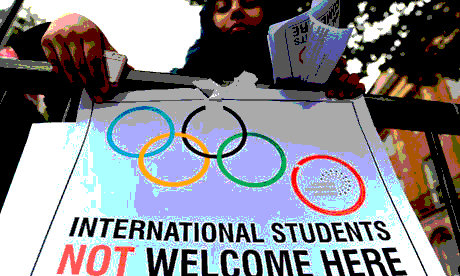Richard B is a Plan C member and helps run the “Sans-Papiers” migrant drop-in centre at “ARCI Porco Rosso” in Palermo, Italy.
In an effort to re-establish control over migration around the Mediterranean into Europe, the EU has instituted a series of cruel policies that effectively trap migrants in the European countries of their arrival, subject them to abused and violence before being deported to transit countries such as Turkey. This imposition of this system has not gone uncontested however.
Greece – Lesvos
The closure of the Greek-Macedonian border in February 2016 has meant that there are currently 4,500 – 4,700 asylum seekers trapped on the Greek island of Lesvos, many of whom have been there for over 18 months. Around another 10,000 are trapped on the various other Greek islands, not allowed to travel to the Greek mainland till their applications have been processed, with a further 50,000 people hosted in centers and camps across mainland Greece. Any asylum seeker who has traveled through Turkey faces deportation to Turkey should their claim be rejected.
Under the Greece-Turkey deal asylum seekers can have their claims rejected because they passed through Turkey, which is officially regarded as a safe country, even if events, such as the military curfews and siege in Eastern Turkey last year and the arrests of political and human rights activists since the coup in summer 2016 clearly indicate otherwise. More than 2,000 people have been deported to Turkey as of June 20th 2017. As with recent negotiations between Italy and Libya, and the EU and a number of African nations, this process of rejection and deportation forms a crucial aspect of European efforts to re-establish control over unauthorized migration by extending Europe’s border well into the Global South.
Alongside the extension of the border, Europe has enacted the so-called ‘hotspot’ approach to unauthorised migration that requires migrants to undergo registration (fingerprinting, etc) in their country of arrival. Coupled with the failure of Europe’s migrant relocation scheme (and, as in the case of the Italian-Austrian border, the resurrection of hard internal borders in Europe designed to stop migrants leaving their country of arrival), this has resulted in thousands of migrants being effectively trapped in Greece and Italy. It is in this context that the Greece-Turkey deal is being weaponised against migrants.
A Syrian asylum seeker, reporting on their experience of applying for asylum in Greece to Nawal Soufi:
“During my asylum interview, it was like I was Turkish, not Syrian. They didn’t want to know about how my brother died before my very eyes, nor about how my parents are living in a refugee camp in Syria. They only wanted details about my life in Turkey, where to deport me, without realising that Turkey then removes people from Turkish territory and sends them back to Syria.” [1]
Recent protests and arrests
Over the past two weeks there have been a series of protests in Lesvos by asylum seekers from across a range of Asian and African countries: Syria, Congo, Mali, Nigeria, Eritrea, Iraq, Bangladesh, Nepal, Afghanistan and Yemen (among others). Perhaps most importantly, on June 27th four asylum seekers (from Iran, Iraq and Syria) in the island’s prison at Moira have been on hunger strike. Arash Hampay, the brother of one of the hunger strikers (Amir Hampay), also began a hunger strike a day later in solidarity, even though he is not imprisoned. [2]
Arash Hampay, hunger striker: “So many men and women died from the cold [in Lesvos] and there was no reaction. Even when a women and child were burning before my very eyes, no one reacted. We refugees are hidden in prisons, beaten, silenced and rejected.” [3]
The protests continued on Lesvos and on July 8th “approximately 50 refugees marched from Moria Refugee Camp to Mytilene in solidarity with the hunger strikers, and in protest of the detention of asylum seekers. The march ended with a rally in Sappho square, the site of Arash Hampay’s hunger strike, where he made a speech denouncing the inhumane practices of the Greek and EU authorities which was translated into four different languages for the crowd that had gathered.” [4]
On July 10th a young man from Mali was arrested for deportation. Protesters set off fires in some of the refugee camp buildings to protest the arrest and to bring attention to the plight of asylum seekers on the island, with the police responding with tear gas. The protestors managed to obtain the release of the detained man [5].
On July 18th there were further protests across multiple sites, again seemingly in response to an African asylum seeker being imprisoned. The police responded with greater violence and a much wider use of tear gas. Parts of the camp were evacuated by the NGOs. [6] Many families had to escape the tear gas and fires and there is a report of a young girl hospitalised from tear gas attack. [7] In total the police made 35 arrests among the asylum seekers.
“Many of the 35 were brutally beaten by the police; some still have visible injuries, many require medical attention, and one remains hospitalized.” (Lesbos Law Centre).[8]
On July 23, Amir Hampay (whose brother had been on hunger strike for nearly one month by this point) was released from the island’s prison. His brother vowed to continue his hunger strike along with the other two imprisoned hunger strikers, until all the prisoners were released, declaring “in the end, the meal of victory is going to be eaten by the people, as ever.” [9]
This did not signal a change in Greece border policy however. On the following day (July 24) at 6am around three hundred police raided the refugee camp and made dozens of searches and arrests. [10] The arrests appear to have been of asylum seekers who have had a second rejection notification. Searches were undertaken to identify those who had participated in the previous weeks’ protests and 54 arrests were reportedly made, though not all resulting in further detention. Nawal Soufi (an Italian-Arab human rights activist) has made a statement about the raid:
“At 6am, police and military officers made irruption in the reception center of Moria, waking up migrants with violences and abuses. … Police officers had a list of names of those asylum seekers to be arrested. Dozens of persons have been arrested. 90% of them are asylum seekers, either with first or second asylum’s request rejected. One of them is a Kurd Syrian, victim of violence in Turkey. Following second rejection of their asylum request, asylum seekers on Greek Island have been recently deported back to Turkey or Afghanistan and other origin countries. We fear persons arrested are at risk of being deported in few hours time. Police were dispatched to the Moria reception center since last Tuesday afternoon following clashes between groups of migrants and police because of dire conditions in the camp, daily abuses and length’s of detention. We are requesting European parliamentary to promptly intervene and to urgently visit Moria camp, in order human right and Geneva Convention to be guarantied in the heart of Europe.”
As with similar processes of violence, abuse and expulsion in the Mediterranean, along Europe’s eastern borders and in North Africa, the abuses are not the result of corrupt policing or national attitudes to migrants, but rather crucial parts of Europe’s border controls. [11] Members of Plan C stand in solidarity with the resistance of asylum seekers on Lesvos and with activists supporting it. It is imperative that progressive grass-roots forces in Europe, including in the Uk, recognise and amplify the actions of those on the front line of dismantling the EU’s inhumane border controls. Free the imprisoned asylum seekers of Lesvos!
Links
[1] – http://www.vita.it/it/article/2017/07/21/nuove-proteste-a-moria-il-racconto-di-nawal-soufi/144105/
[2] – https://arashhampay.tumblr.com/
[3] – https://www.vice.com/de_ch/article/vbm8zj/interview-mit-einem-fluchtling-im-hungerstreik
[4] – http://www.legalcentrelesbos.org/2017/07/13/july-report-on-rights-violations-and-resistance-in-lesvos/
[5] – http://greece.greekreporter.com/2017/07/10/clashes-erupt-between-greek-police-and-migrants-in-lesvos-camp-video/
[6] – https://uk.news.yahoo.com/protest-turns-violent-moria-camp-115435677.html
[7] – http://greece.greekreporter.com/2017/07/18/migrants-set-fires-at-lesvos-camp-clash-with-police/; https://twitter.com/ajplus/status/887547074094317568
[8] – http://www.legalcentrelesbos.org/2017/07/20/hearing-tomorrow-at-mytilene-court-for-moria35/
[9] – https://68.media.tumblr.com/55fb77bcb4534bd47ba926060a5af952/tumblr_otkbyiMnTM1wuey0uo2_1280.jpg
[10] – https://enoughisenough14.org/2017/07/24/refugeesgr-large-scale-police-operation-at-moria-hunger-strike-continues/#more-25437
[11] – http://www.metamute.org/editorial/articles/rubber-boats-planetary-class-struggle



